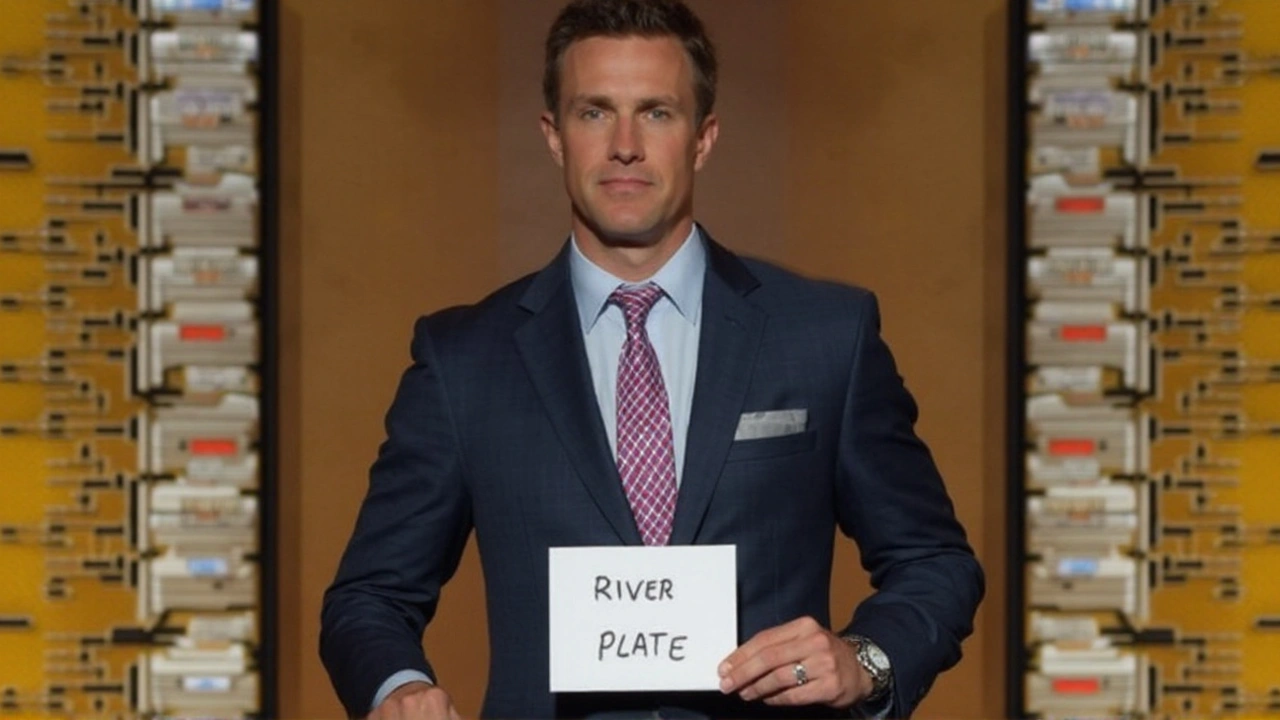Job done: a goalless draw that felt like a win
A 0-0 can say a lot. In São Paulo, it said control, maturity, and a team that knows how to manage two legs. Palmeiras drew with Universitario at Allianz Parque in the early hours of August 22 (00:30 UTC), locked in a 4-0 aggregate, and walked smoothly into the Copa Libertadores quarter-finals. The tie was effectively settled a week earlier by that ruthless opening-leg performance. The second act was about keeping the wheel straight.
The Brazilian side didn’t need fireworks. They needed calm. With a four-goal cushion banked, Abel Ferreira’s team kept the tempo where they wanted it, shut down space, and refused to let the night get messy. Universitario, Peru’s most storied club alongside Sporting Cristal in Libertadores history, showed heart and energy, but the gap from the first leg was a mountain they never looked likely to climb.
Flaco López and Vitão, who set the tone in that 4-0 demolition, were once again central to Palmeiras’ structure and presence. Not everything they tried came off in the return, and it didn’t have to. The real work was already done. The second leg served more as a reminder of how knockout football is won: build the lead, then protect it with discipline.
Match control, Brazilian dominance, and what comes next
From the opening minutes, Universitario tried to stir the game. They pressed higher, pushed their wingers on, and looked for early set-pieces to inject doubt. Andy Polo buzzed around the right channel, while Britos attacked crosses and second balls. A half-chance here, a skidding shot there—none of it truly cracked Palmeiras’ shell. The hosts slowed the game when they needed to, drew fouls in safe areas, and turned transitions into time off the clock.
That rhythm control is a hallmark of Abel Ferreira’s knockout teams. Palmeiras handled the middle third with a low-risk approach, choosing not to chase a game they didn’t have to win. The back line was compact, the midfield screened well, and there was always a spare body behind the ball when Universitario tried to counter. If the first leg showed Palmeiras’ teeth, the second showed their head.
Universitario leave with regrets about the first leg in Lima, where the tie got away from them. Over two legs, you can live with a single-goal setback. Four? That’s suffocating. Still, there are positives for the Peruvians. Reaching the round of 16, competing with a top Brazilian side without folding in the second leg, and staying brave on the ball at Allianz Parque are steps they can use to raise standards at home and in future continental campaigns.
For Palmeiras, the quarter-final setup is clear: River Plate or Libertad await. Either opponent brings a different kind of test. River, with their habit of showing up when the stakes rise, offer weight and experience. Libertad bring stubbornness and a knack for making one-goal margins feel like two. Palmeiras have been here often enough—titles in 1999, 2020 and 2021—to know that these are the weeks when the margins get thin.
This tie also fit a wider pattern. Brazilian clubs have owned large parts of South America’s club scene in recent years. Money matters, yes, but so does squad depth, tactical flexibility, and the ability to rotate without a drop-off. Palmeiras tick those boxes. When they sprint, they look like champions. When they cruise, they still look in control.
The goalless second leg will never make a highlight reel, and that’s fine. It was about the clean sheet, the lack of panic, and a professional night at home. Universitario’s best burst came early in the second half, when a quick switch opened a lane for Polo, but Palmeiras closed the angle and smothered the rebound. After that, the Peruvian side’s push turned into hopeful balls and long shots. The clock did the rest.
There’s also a mental edge to nights like this. Teams that win tournaments don’t lean on brilliance every time; they lean on habits. Palmeiras’ habits—compact lines, work without the ball, and simple, direct outlets to relieve pressure—held firm. They didn’t invite chaos, didn’t give up the silly turnover in the middle, and didn’t break shape chasing a fifth goal on aggregate. It was grown-up knockout football.
Universitario can point to their path to the last 16 and to performances from players like Polo and Britos as markers of progress. The region’s reality, though, is tough: Peruvian clubs haven’t made a deep Libertadores run since the late 1990s. Closing that gap takes more than one window. It requires depth, a stronger bench, and consistency against the pace and power of Brazil and Argentina’s best. This tie showed the distance, but also that Universitario are not out of place at this level.
Palmeiras, meanwhile, will turn the page and start plotting for the quarter-finals. The next round usually comes down to small swings—set-pieces, the first 15 minutes after halftime, moments when a second yellow or a deflection changes everything. Having two legs where you handle the easy stuff—the basics—can be just as important as the one night you light up the scoreboard. This was that first part: the foundation.
- Aggregate: Palmeiras 4-0 Universitario
- Second leg: 0-0 at Allianz Parque, São Paulo
- Kickoff: 00:30 UTC
- Palmeiras’ key influencers in the tie: Flaco López and Vitão in the first leg, a collective defensive effort in the second
- Universitario’s bright spots: Andy Polo’s energy and Britos’ movement in the box
- Next: Quarter-final vs River Plate or Libertad
No drama, just progress. Palmeiras are through, healthy, and on schedule for another deep run. The real tests are ahead, but nights like this show why they arrive at that stage with belief.




Wow, what a solid performance by Palmeiras!! They totally controlled the game, kept their shape, and didn’t let any panic slip in, you know?? It’s like watching a chess match where every piece knows its move, and the crowd just vibes with the calm, lol!!
Palmeiras showed real dominance, and that’s exactly how you win knockout ties – you take the lead and then lock it down, no excuses. The team executed the game plan with precision, and any opponent trying to break that structure is just setting themselves up for failure. This is the kind of disciplined football that separates champions from pretenders.
Honestly, a 0‑0 is boring as hell.
The match was a textbook example of tactical discipline, nothing flashy but utterly effective.
In the silence of a goalless night, the true nature of a team is revealed.
Exactly, Anna! The calmness was the real star, and those subtle passes were like poetry in motion, proving that control beats hype any day.
Mayank, you nailed it – locking down the game is the safest route, especially when you’ve got a four‑goal cushion waiting for you.
It’s great to see Palmeiras keep their composure and not overthink things. The solid defensive setup gave them the freedom to breathe and enjoy the night.
Indeed, Giacinta, the minimal risk approach is the hallmark of seasoned squads; the elegance lies in simplicity.
Palmeiras' performance was flawless, a true masterclass in pragmatism 😊. They didn’t need to light up the scoreboard to show who’s boss.
Kasey, the understated brilliance here is exactly why fans appreciate the game beyond the drama – solid, steady, and supremely effective.
Universitario gave it their all, but Palmeiras’ habit of staying compact turned any attack into a mere flicker of chance.
Wesley, the Brazilian clubs’ depth truly shines here – a disciplined backbone that even national pride can’t eclipse.
The 0‑0 may not be a thriller, but it’s a textbook lesson in game management, a showcase of patience and tactical awareness.
I'm genuinely thrilled to see a team like Palmeiras demonstrate such composure under pressure, because it reminds us all that football is as much a mental battle as a physical one. They entered the second leg with a four‑goal advantage, yet they didn't become complacent, and that mindset is something any aspiring club should emulate. Each player seemed to understand his role, whether it was pressing high, dropping deep, or simply holding the line, and that cohesion is the product of countless hours of training. The coaching staff deserves credit for instilling a culture where discipline trumps flashiness, especially in knockout phases. It's fascinating how the rhythm of the game was dictated by their deliberate slowing down, turning possession into a defensive shield. Even when Universitario pushed forward, the Palmeiras backline remained as solid as a brick wall, refusing to open any cracks. The midfielders acted as a buffer, intercepting passes and recycling the ball with precision, which kept the opponent frustrated. This approach not only protected their lead but also conserved energy for the more demanding fixtures ahead. I love how this match serves as a case study for anyone who believes that only goals matter; sometimes, preventing them is just as glorious. The fans in São Paulo must have felt a reassuring calm, seeing their team control the tempo without fear. Such performances also send a message to future opponents: Palmeiras won’t let up, no matter the scoreline. The psychological edge gained here is priceless, especially when facing teams like River Plate or Libertad later. It’s a reminder that the foundation of any great run is built on consistency, not just spectacular moments. I hope other clubs in South America take note and invest in building similar defensive discipline. In the end, this night might not have produced highlight‑reel fireworks, but it delivered a masterclass in efficiency that will be remembered for years. Let’s celebrate this quiet victory and look forward to the challenges ahead with optimism.
Honestly, a 0‑0 feels like a waste of airtime; why even watch if there’s no drama?
Well, Nelleke, I get where you’re coming from, but think about the bigger picture – a clean sheet in a knockout tie is like a silent victory that screams confidence 😎. The team’s ability to manage the clock, keep possession, and neutralize attacks shows a level of maturity that many clubs chase but rarely achieve. It’s not just about the goals; it’s about controlling the narrative and setting the tone for the next round. Even if the fans crave fireworks, the tactical discipline displayed serves as a foundation for future success. Plus, the players can rest a bit, avoid injuries, and stay fresh for the upcoming clash with River or Libertad. That’s a strategic advantage worth appreciating. So, while the match might have lacked drama, the underlying strategy was a masterpiece in its own right 🚀. Let’s give credit where it’s due and enjoy the calm before the next storm.
Jocelyn here – absolutely agree with Shreyas. Maintaining composure while staying aggressive when needed is the hallmark of a championship mindset.